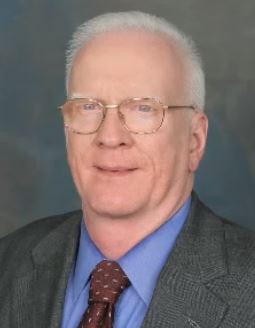Standing in the way of construction of a state-of-the-art geothermal energy plant in central Nevada is none other than the renowned Dixie Valley toad.
And two proposed mines — one near the Oregon border and the other between Reno and Las Vegas –that would supply lithium for EV batteries are in limbo thanks to opposition from groups supportive of electric vehicles.
President Biden’s much-heralded “incredible transition” to renewable energy is getting a nasty dose of reality served up by the administration’s political allies.
Let’s begin with the toad. Reno-based Ormat Nevada’s plans to tap hot underground water to generate electricity with steam-powered turbines on federal land near Fallon have triggered a court battle, a nasty dispute between two Interior Department agencies, and opposition from tribal and environmental groups. The rare toad’s habitat is in the same hot springs where the geothermal power plant would be built, and the springs are also sacred to local Native American tribes.
Food Fight within the Interior Department
Eager to promote the Biden administration’s push for renewable energy, the Interior Department’s Bureau of Land Management (BLM) approved the geothermal project last December. But Interior’s Fish and Wildlife Service (FWS), which has jurisdiction over the Endangered Species Act (ESA), declared the toad as endangered on an emergency basis in February.
It is now up to the San Francisco-based 9th Circuit Court to decide whether BLM of FWS prevails. The court will have to determine whether protecting the toad takes precedence over greenlighting a renewable energy project.
In their amended lawsuit against Ormat, the Center for Biological Diversity and the Fallon Paiute-Shoshone Tribe allege that the developer and BLM are both in violation of the ESA because they’ve failed to halt construction of the facility “despite the USFWS’s unambiguous finding that the project poses an imminent and existential threat to the Dixie Valley toad.”
Scott Lake, a lawyer for the Center for Biological Diversity, told the Nevada Appeal (July 26) that the benefits of renewable energy are “something that the tribe and the center actually agree with. But nothing in the public record establishes a public interest in, or a public need, for this particular project … on a tribal sacred site and in such a way that threatens the entire existence of the Dixie Valley toad.”
A ruling from the court is expected soon.
Keep it in the Ground
Now on to the lithium mines. Billions of dollars in taxpayer funds and private investment capital are being poured into lithium-ion batteries to power the millions of EVs proponents say will be on the road in a few years. China has a firm grip on lithium mines in South America and central Africa, even though the U.S. has substantial lithium deposits of its own. But the “keep it in the ground” rallying cry of green groups opposing extraction of fossil fuels is now spilling over on would-be domestic lithium developers.
Lithium Nevada’s plans to begin development of the largest-known lithium deposit in the U.S. near the Oregon state line is being fiercely opposed by green and tribal activists. Groups such as the Progressive Leadership Alliance of Nevada and the Great Basin Resource Watch say the proposed mine will produce toxic waste. The project has also drawn the ire of local tribes who point out that the mine would be on a site where their ancestors were buried after being massacred by the U.S. Cavalry in 1865. Another lithium mine, still on the drawing boards, is slated for a site between Reno and Las Vegas, which happens to be the habitat of a rare desert wildflower the FWS is proposing for listing under the ESA.
The fight over the Nevada lithium mines will likely drag on for years, slowing down the transition to green energy and adding to the already high cost of EVs. Batteries are the most expensive component of an EV, and producing them for less is essential to making such vehicles available at a lower price. “The raw materials needed to make an electric vehicle in the U.S. cost around $8,255 per vehicle as of May, from roughly 3,484 two years earlier,” the Wall Street Journal reported (July 26).
Demand for lithium is expected to grow six-fold by 2030, whether that much lithium will be mined, and at what price, is another matter altogether. The Biden administration’s goal of an electric grid supplied by 100 percent “clean” energy was always a pipe dream, albeit one likely to become a nightmare. Lithium won’t get cheaper; it will get more expensive, and so will the EVs. The green activists in Nevada are doing their best to make it so.
A closing comment on the proposed geothermal power plant. Unlike intermittent wind and solar power, geothermal supplies reliable electricity 24/7 when the geology is right (see Iceland). But geothermal developers in the U.S. are going to run into resistance from the same people who have opposed all mining projects, be they for gold, silver, nickel, or whatever. And they will have to deal with the same endless red tape that has spelled the end to many a once-promising project.
* This article was originally published here
PUBLISH WITH US!
The Washington Gazette works at our discretion with businesses, non-profits, and other organizations. We do not work with socialists, crony capitalists, or disinformation groups. Click the green button below to view our services!
HELP STOP THE SPREAD OF FAKE NEWS!
SHARE our articles and like our Facebook page and follow us on Twitter!






0 Comments